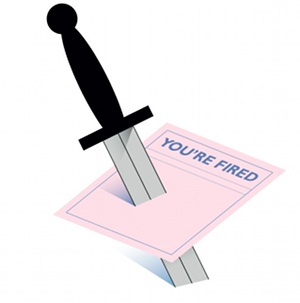The recession is decimating business profits across the state, requiring employers to cut their workforces.
STATEWIDE The recession is decimating business profits across the state, requiring employers to cut their workforces. Along with that has come increasing numbers of ex-employees who feel their pink slips are in retaliation for reporting unsafe or discriminatory work environments.
Nationally, such claims jumped 22% in fiscal year 2008, rising from 26,663 to 32,690, according to the Equal Employment Opportunity Commission. Oregon mirrors the national trend, with the Bureau of Labor and Industries reporting that its organization received 542 retaliation claims in 2008, up 23% from 438 the previous fiscal year. Those figures are expected to continue rising in 2009 as wide-scale layoffs continue.
“Retaliation claims are absolutely the most common claims against employers,” says Victor Kisch, a partner at Stoel Rives. “We are undoubtedly seeing an increase.”
Under state and federal law, employers are prohibited from retaliating against any employee who they believe has taken certain “protected actions” that are detrimental to the company’s finances or reputation. These actions include an employee’s right to report discrimination or illegal activities in the workplace, claim workers’ compensation or take family leave, which are protected under laws such as the American Disabilities Act, Family Leave Act and Civil Rights Act.
Whether an employer retaliates against an employee by firing, demoting or otherwise punishing him or her, doing so is illegal and can result in a retaliation lawsuit.
With the economy depleting resources, work environments are becoming increasingly intolerant of costly, poor-performing employees, says Amy Angel, associate at Portland-based employment law firm Barran Liebman. This leaves more employers open to wrongful termination and retaliation lawsuits.
Legal proceedings center on determining the validity of the claim, and whether the employer is at fault. They also seek settlements on adequate compensation and the approval of unemployment benefits claims. Kirsh says claimants are almost always looking for monetary compensation, not reinstatement.
“Just about every employment and labor case, except wage-and-hour disputes, has some charge of retaliation,” says Kisch. Companies can avoid such claims by carefully documenting the reasons they are firing or laying off employees, as well as communicating to them why it is happening and what to expect, says Angel.
NICOLE STORMBERG
Have an opinion? E-mail [email protected]



